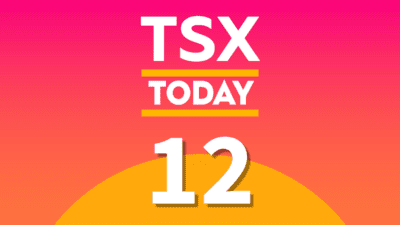Whether you’ve been investing for decades or just starting out, exchange-traded funds (ETFs) are a great perfect for any portfolio. But that doesn’t make picking one easy.
With so many to choose from, many investors usually go with one of Canada’s Big Five banks when they tread into ETF waters. But those ETFs usually come with a pretty high price tag given that they hold sometimes hundreds of stocks.
If you’re looking for something cheaper, but still strong, Horizons S&P/TSX 60 Index ETF (TSX:HXS) is a great place to start.
How does it work?
Unlike other ETFs that hold hundreds of stocks, Horizons is a compilation of the top 60 blue-chip Canadian stocks on the TSX. It also uses a total-return swap structure rather than investing directly in stocks. This means that shareholder investments are held as cash collateral in a custodial account, and any interest earned goes to the ETF’s bank counterparty. The counterparty then delivers to the ETF the total return of the 60 stocks.
What’s great about this is that Horizons has direct exposure to the performance of the S&P/TSX 60 without actually owning any of the stocks, thereby getting the benefit of large exposure without the hefty price tag. Don’t get me wrong: there is still an element of risk with this ETF due to its credit risk, as it doesn’t own any of these stocks. But the upside is still pretty high.
As well, the value of the ETF reflects both the price return of the S&P/TSX 60 plus any reinvested distributions daily by the stocks in the index, such as dividends. So while you won’t get a dividend from this stock, you’ll still benefit if the stocks in the Horizons ETF offer one.
What am I actually investing in?
As I mentioned earlier, Horizons compiles the top 60 blue-chip Canadian stocks in the S&P/TSX 60, but there are some things to note.
The largest portion of Horizon’s holdings are the major banks at 39%. This is great news for investors, as Canadian banks were some of the strongest in the world coming out of the financial crisis, and remain so today. These banks are now looking abroad for growth, leaving even more opportunity while they grow on this ETF.
The second-highest amount of companies held by Horizons are Canadian in the materials and energy sector. The ETF primarily holds fertilizer producers and precious-metal miners, which, given the drop in oil prices, has recently proven to be a big bonus. These companies enjoy low production costs and therefore can generate more profits even when the price of production goes down.
How much?
I’ve been going on and on about how cheap this stock is, and right now that still holds true. Shares are being sold at about $32 at the time of writing this article, down just over $2 from the 52-week highs, and $2 above the lows.
The price of shares has seen a steady increase over the past five years, growing by almost 38%! Even in this volatile market, the last two years have also seen growth of about 5%. While this fund is subject to capital gains tax, the management fees are shockingly low at 0.03% (no, I didn’t misplace that zero). That fee should remain steady for a while, as it’s been the same since Jan. 1, 2016 and will remain in place until at least September 30, 2019.
Bottom line
Horizons offers an incredible opportunity for investors to access the 60 largest companies in Canada for a fraction of the cost of other ETFs. The risk of the stock recently came down from medium to low-to-medium risk, making it a cheap and almost worry-free investment over the long haul.







